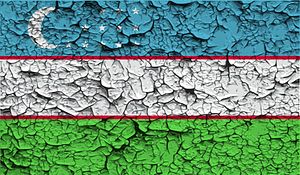Corruption and Central Asia often appear in the same sentence these days. Over the past few years, the issue of corruption in the region has floated onto front pages around the world and risen to the top of regional reform agendas. The plethora of high-level corruption scandals–involving elites and the relatives of the region’s ever-increasing number of presidents-for-life–are certainly at odds with the anti-corruption drives.
Kazakhstan has appeared of late in the news, with the grandson of the Kazakh president popping up in the Panama Papers and his son-in-law paying a British Prince a suspiciously elevated mount for a mansion then left to decay. Uzbekistan, also, frequently appears in the news in relation to the seemingly endless pit of corruption scandals linked into President Islam Karimov’s regime, many through his fallen-from-grace daughter, Gulnara.
Uzbekistan’s high-level corruption is the subject of a recent white paper written by David G. Lewis. The report digs into Uzbekistan’s particular culture of high-level corruption, examining its political context and the resource flows which corrupt officials dip into. He also examines the malfunctioning systems and policies which ought to constrain corrupt practices and the relative ineffectiveness of development programs aimed at reform. The 48-page paper is well worth the time to read as it provides both a decent overview (in the executive summary) while diving meaningfully into the intricate “how” and “why” questions. I’ll highlight a tiny portion, but wholeheartedly encourage a full reading of the paper.
Lewis focuses on the “political and institutional drivers of corruption.” While acknowledging that some analysts root widespread corruption, at all levels of society, in the former Soviet Union in social and cultural practices, Lewis points out that such explanations, “have limited explanatory power in relation to high-level, systemic corruption in the state.”
Essentially, systems of corruption persist not because they are rooted in local culture but because they serve a purpose–that is, in Uzbekistan both an economic and a political purpose for the elites which benefit from corrupt practices.
The political context which frames corruption in Uzbekistan is necessary to understanding the “how” and “why.” “The most important political groupings are not political parties,” Lewis writes, “but patron-client systems or networks, which compete for control over business and resources.”:
It is the interaction among these power networks—presided over by an autocratic president—that decides fundamental questions about who has access to political and economic resources, and who ultimately wields power. Within this system, corrupt practice is not an aberration from the legal norm, but effectively becomes the norm, albeit covered by a façade of legality.
In this way, corruption is such a fundamental part of politics in the country that reform from within may simply be a mask for political maneuvering. Lewis notes that a number of arrests in recent years of officials and businesspeople can be linked into Gulnara Karimova’s network. The point is not to say that these individuals were not involved in corruption (they probably were), but “the fact that there has been so little systemic reform suggests that the arrests may have been primarily concerned with a recentralization of power and a redistribution of resources among rival groups in the elite rather than a genuine anticorruption campaign.”
While corrupt practices may be a fundamental tool of economic and political control, in the short term centralizing power; in the long term, Lewis writes, “the impact of systemic corruption is highly detrimental for both economic and political development.” Not only does rampant corruption undermine international investment in the country but its political nature feeds instability. Lewis, and others, have described Uzbekistan’s political system as a “neopatrimonial authoritarian” system, “in which the familiar institutions of the modern state—government ministries, courts and judiciary, and a parliament—are combined with informal, behind-the-scenes dynamics of political power, based on patron-client relationships and regional network.”
Karimov, at 78, is Central Asia’s oldest leader and the country lacks a clear succession plan. The system, which coalesces around Karimov, may very well break down without him at its center. There are other powerful nodes in the system, but Karimov keeps them in line (or, if they overstep, purges them). This certainly sets the scene for a messy post-Karimov Uzbekistan in which various nodes of power compete for dominance of the system.
If you happen to be in Brussels on June 1, Lewis and several others will be at the Open Society European Policy Institute to discuss corruption in Uzbekistan, particularly on asset recovery in Europe.

































